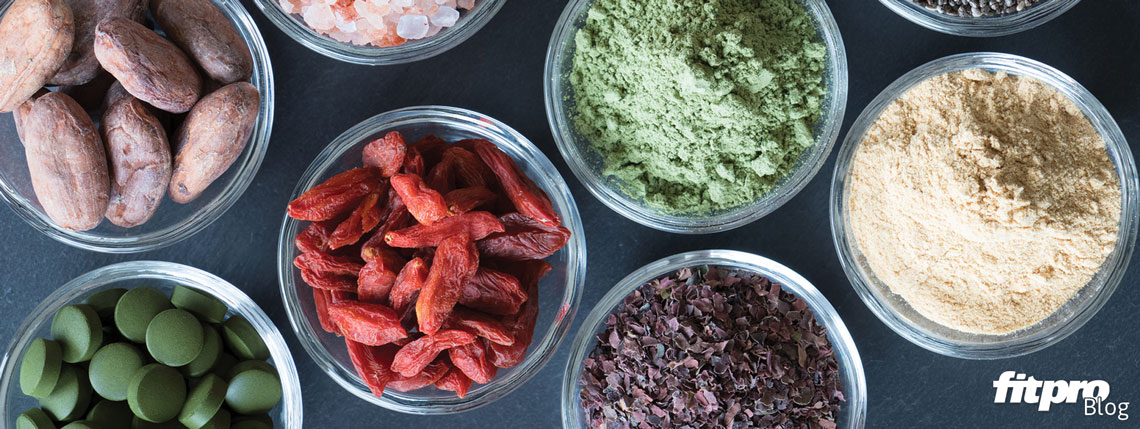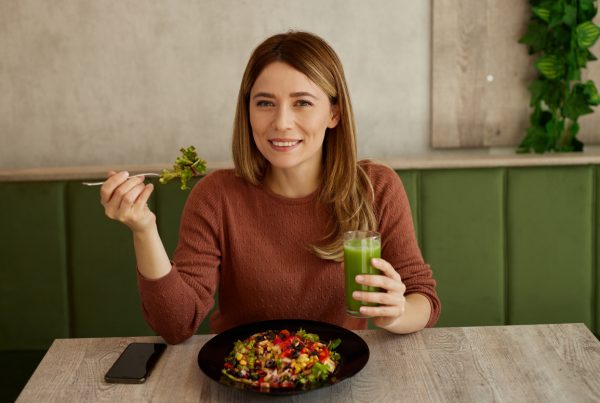There’s so much choice these days when it comes to fashionable food products, from hemp to maca to bee pollen to ashwagandha and a heap of other options besides. So we asked FitPro’s resident dietitian Linia Patel to analyse three of the fashionable foods we have in our cupboards to find out whether it’s actually worth consuming them.
Fashionable food 1: Maca
Maca is a root that traditionally grew in Peru but is now grown more widespread. There are different types of maca; however, yellow, black and red are the most common kinds. Maca is touted as a superfood with potential benefits for general health – mainly stamina and libido. Maca powder contains carbohydrates (65-75%), proteins (9-13%), lipids (0.6-0.9%) and fibre (4-8%, mainly cellulose and lignin). It is high in copper and a good source of vitamins C and B6, iron, calcium, potassium and manganese. It also contains trace elements, plant sterols and glucosinolates (compounds touted to have anti-cancer properties). The main bioactive substance is said to be an alkaloid known as macaridine.
While there is a limited amount of research on maca and its positive effect on fertility, more rigorous clinical studies are needed to confirm maca’s role in metabolism, its benefits and its potential toxicity, as well as recommendations for its general use. You can still use maca as part of a healthy, balanced diet – just don’t expect any miracles1,2. Maca has a malty, nutty and rich flavour, which means it can be added to anything from porridge and smoothies to soups, baked goods and desserts.
Fashionable food 2: Hemp products
Hemp is not marijuana. It is one variety of many cannabis strains. Hemp foods carry many nutritional benefits. Whole hemp seed contains roughly 20-25% protein, 25-35% oil, 20-30% carbohydrates and 10-15% insoluble fibre, as well as vitamins and minerals like vitamin A and E, phosphorous, potassium, magnesium, sulphur, calcium, iron and zinc. Hemp foods provide a wide array of omega-3 and 6 fatty acids, which include alpha-linolenic acid (ALA), gamma-linolenic acid (GLA) and stearidonic acid (SDA). GLA, an essential omega-6 fatty acid, has been linked to a reduction on premenstrual syndrome symptoms and hormonal balance. Stearidonic acid is a plant-based omega-3 that elicits the same anti-inflammatory health benefits.
Hemp seeds provide all the essential amino acids, making it a highly complete vegan protein source that is tolerable for those with nut allergies. The majority of the research on hemp products, which has been done on animals, identifies hempseed oil as a functional food; however, more research is needed to be done to learn more about specific uses of hemp products3,4. For now, including hemp products such as hemp protein powder or hemp oil in your cupboard may be a good thing!
Fashionable food 3: Turmeric
This super-spice is one of the most studied ‘superfoods’. Curcumin, the active ingredient found in turmeric, is thought to be anti-inflammatory and therefore has been linked to being beneficial for conditions such as heart disease, osteoarthritis and Alzheimer’s, for example. Bioavailability is thought to be improved in the presence of black pepper. Traditionally used more in cooking, you can now find turmeric drinks in all shapes and sizes. The scientific evidence to support the role of curcumin in inhibiting the inflammatory process continues to mount. However, there is still no clear recommendation for curcumin dosage. More research is needed to improve bioavailability of supplements and determine specific recommendations for curcumin. While more research needs to be done to clarify the therapeutic benefits of turmeric, it is still a good spice to add to your cooking5. Stir through scrambled eggs, add to rice, soups, casseroles and stews during cooking, sprinkle on roasted vegetables or spice up your salads with a pinch in your salad dressing (this works particularly well with lemon-based dressings).
Coming soon … Get the lowdown on protein supplements in Linia Patel’s informative podcast, exclusively recorded for FitPro. If you’re a member and not already receiving our newsletter – which is changing to a weekly item with a fresh podcast EVERY week! – make sure your contact details are up to date by logging in to fitpro.com … you don’t want to miss our weekly podcasts!
About Linia Patel

Linia Patel has a BSc degree in biochemistry and physiology. Since graduating in 2006, Linia has taken up
various leading roles in performance nutrition and public health. liniapatel.com
References
- Melnikovova I, Fait T, Kolarova M, Fernandez EC, Milella L (2015), Effect of lepidium meyenii walp. on semen parameters and serum hormone levels in healthy adult men: A double-blind, randomized, placebo-controlled pilot study, Evidence-based Complementary and Alternative Medicine: eCAM.
- Dording CM, Schettler PJ, Dalton ED et al, A Double-Blind Placebo-Controlled Trial of Maca Root as Treatment for Antidepressant-Induced Sexual Dysfunction in Women.
- Callaway J (2004), Hempseed as a nutritional resource: An overview, Nutr. Metab., 140(1-2).
- Delfin R, Pierce G (2015), The cardiac and haemostatic effects of dietary hempseed, Nutr. Metab.
- Gupta SC, Patchva S, Aggarwal BB (2013) Therapeutic roles of curcumin: Lessons learned from clinical trials, AAPS J, 15(1):195-218.







